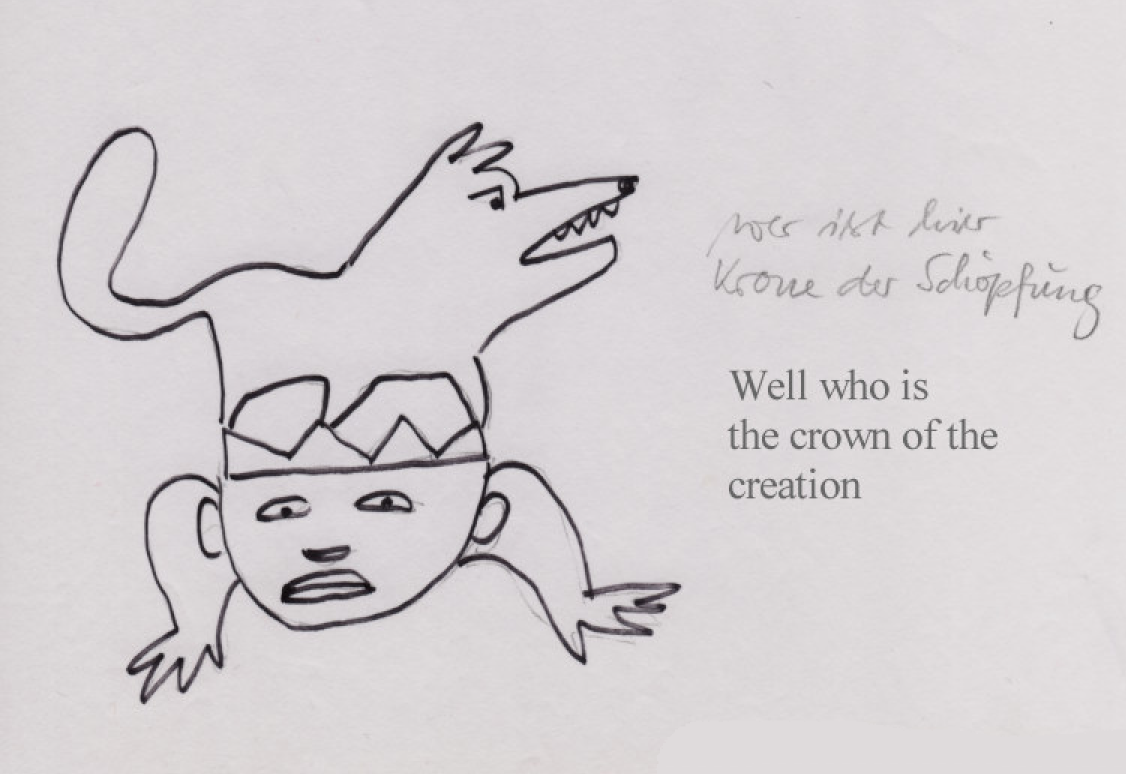Animal sociology as an interface between animal rights activists and animals
When a statement such as the following relates to the human-animal relationship, it is only logical to both:
1.) To respect non-humans in their own sociology instead of forcing them into biologistic frames.
2.) And that equally also an animal-human-relationship exists perspectively
3.) And last but not least, that even the overlap to the stratum of the ecosocial is also a reference in which animals in particular, but also humans, express and manifest social and psychological reference to „the co-living/co-life“ and coexistence.
Yet look for instance:
„The Sociological Study of Animals. Accepting that animals are conscious social actors suitable for sociological study, let us move on to how such work can actually be done. Examples have arisen from various theoretical traditions and have investigated a number of roles that different animals play in so-called human society (Stuart et al. 2013, 201–2). As shown above, most focus has been on pets strongly integrated into human social groups, but farm animals, zoo animals, and wild/semi-wild animals have also received attention. Through reaching unique and useful conclusions about the interconnected lives of animals and humans and the significance of animals to wider social systems, such work demonstrates that using sociological methods and concepts to study animals is not only possible, but potentially greatly beneficial to our understanding of society as a whole (Stuart et al. 2013, 218).“ From: Albert Ferkl: The Question of Non-Human Animals in Sociology, https://www.animalsandsociety.org/research/sloth/sloth-volume-4-no-1-winter-2018/question-non-human-animals-sociology/ [accessed 12.09.2023].
If animals are recognized here as conscious social actors, the question is, what exactly constitutes a negation of animals interacting with each other in socially meaningful ways? Presumably the notion that there can only be one, anthropogenic overall context that is supposed to make social interaction meaningful in the first place.
Such perspectives seem restrictive and backward, but they are the normality.
And so, for example, contributors to participatory sites such as Wikipedia inconspicuously ignore the efforts of animal rights activists who advocate a recognition of animal sociology in the form of a decidedly non-biologistic approach to knowledge, as if even in the intersections between animal movements and their contents, and non-human animals, no sociological meaning of equal relevance to both sides could be discerned.
—
Mindsetwise the animal-machine-model is still cultivated here, only in biologizing formulations. The vehement commitment against speciesism and the constructive interest in the animal question of countless people is more or less silently faded out as childish sentimentality. In the matter of the mental attitude concerning animals, the majority of the people thus still hides behind similar points of view as the vivisector Descartes represented them. With and without enlightenment.
rev. 13.10.23

Eine Antwort auf „Animal sociology as an interface between animal rights activists and animals.“
[…] > repost > https://tierrechtsethik.de/animal-sociology-as-an-interface-between-animal-rights-activists-and-anim… […]